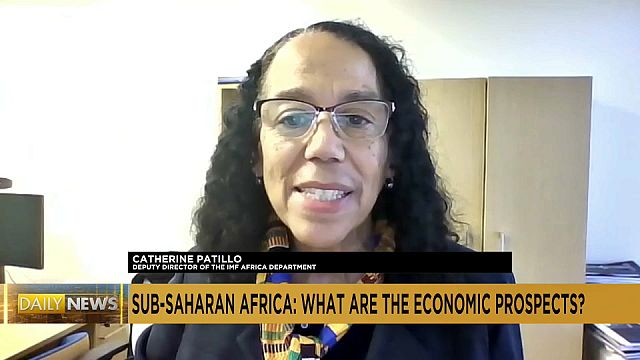Samuel Dubik Mahama, Managing Director (MD) of the Electricity Company of Ghana (ECG), on Wednesday, officially resigned, but has refused to give reasons behind his resignation addressed in a letter to the ECG Board Chairman, Alexander Afenyo-Markin, aside citing personal reasons for the decision to step down just two years in office.
Interestingly, Keli Gadzekpo, had also resigned as the board chairman of ECG, under similar circumstances, citing personal reasons.
However, The Herald, has landed multiple reasons behind Mr Mahama’s decision, chief among them is hostilities he had incurred from ECG workers for running the state-owned company on his whims and caprices, especially concerning huge procurements contracts running into millions of United States dollars.
In some instances, he had used National Security and the Economic and Organised Crime Office (EOCO) to intimidate the workers.
Mr Mahama, who until his appointment as MD was a board member, reportedly collapsed the procurement department of the company immediately after taking over the institution and sent personnel of that department to the Estate Department.
He then went out to rubbish ECG’s existing mobile payment App to create room for awarding Hubtel the contract.
ECG contacts, have disclosed that the US$25 million paid for the app, is outrageous and criminal, adding it shouldn’t have cost US$20,000.
Most procurements, were done under a single-source arrangement.
He had run deals with politicians on both sides; the governing New Patriotic Party (NPP) and the opposition National Democratic Congress (NDC).
Known members of the two parties, were very protective of him and had refused to question his many multimillion-dollar contracts, including the Hubtel deal.
The Herald’s intelligence picked up that, while some Members of Parliament (MP) were getting regular cash labelled as “fuel” to fill their pockets, others were benefiting by way of rural electrification projects in their constituencies, and were too wounded by his goodies to question his stewardship. Hubtel was also giving the MPs cash regularly.
Some angry workers of ECG, had complained to journalists and media houses about happenings in the company, but either refused to report on Dubik’s management of ECG or rather rushed to divulge the information brought to them on the developments in the public institution.
In the case of the Hubtel deal, Mr Mahama, had used National Security and EOCO to intimidate ECG workers who were in disagreement with him about the collapse of the existing mobile payment.
In one instance, staff of ECG, were arrested by personnel of EOCO, who had reportedly refused Hubtel access to the EGC app. Mr Mahama, had demanded officials of the company’s IT Department to give him the Source Code to the mobile app for onward release to Hubtel, which was struggling to build its payment platform after the US$25 million contract.
It’s reported that, two weeks after the Sources Code got to Hubtel through the use of EOCO, ECG’s metering and billing system was hacked.
Mr Mahama, recently disclosed claimed some GH¢400 million to GH¢500 million loss to the company as a result of the hacking. The ransomware attack happened between late September 2022 to early October 2022, but to date, the report isn’t out yet.
The inflated exchange rate with Fidelity Bank, was also a blight on his stewardship.
On Saturday, March 2, 2024, African Center for Energy Policy (ACEP) boss, Benjamin Boakye, exposed a scheme dripping with suspicion on Joy FM’s Newsfile and X formerly Twitter, where he called ECG for buying dollars at a grotesquely inflated rate of GH₵13.95, when the market rate at the time hovered around GH₵11.5.
Mr Bright Simons, followed and mentioned Fidelity Bank, as being the bank involved in the transactions in the inflated exchange rate scandal with ECG.
A statement on the letterhead of the bank on Monday, 4 March 2024, went viral, describing as false a “Bright Simons’ publication on X where he alleged that ECG was “dishing out” 80 Million Ghana Cedis for free to Fidelity Bank in “Sweetheart” Exchange rate deals”.
Interestingly the statement admitted that “Fidelity Bank Ghana Limited did source for foreign exchange on behalf of ECG in 2023 and the sources of the funds were from both Bank of Ghana and the open market” but failed to quote the exact amount at which it sold the dollars to EGC.
The state power company had in a report to the Cash Waterfall Mechanism (CWM) Committee of the Public Utilities Regulatory Commission (PURC) previously under the Office of the Vice President said it bought dollars as of last October at GH₵13.95 although the market rate at the time according to Bank of Ghana, hovered around GH₵11.5.
Aside from ECG workers, Mr Mahama, also had open confrontations with the (PURC over the price waterfall mechanism, where he was often accused of flouting recommendations.
Last Wednesday evening, Dubik Mahama, wrote to the Board Chairman of ECG, saying “I am writing to formally resign from my position as Managing Director of the Electricity Company of Ghana, effective two weeks from the above date. The decision has not come easily, but after much reflection, I have concluded that it is in my best interest to step away for personal reasons.
“Over the past two years and four months. I have had the profound honour of serving this esteemed organisation, and I am truly grateful for the opportunities I have received. I want to extend my heartfelt thanks to the Board for your unwavering support and guidance throughout my tenure. I also wish to express my sincere gratitude to the President for the trust placed in me, which has been a significant aspect of my journey here.”
Mahama, was appointed by President Nana Addo Dankwa Akufo-Addo and assumed the role on May 16, 2022.
Before taking on the role of Managing Director, Mahama had served as a non-executive director at ECG. He also brings with him extensive experience in both the private and public sectors.
His previous roles, include non-executive director at GIHOC Distilleries, country representative for Gulfsouth Forest Products, and partner at Dubik & Associates and Wilkins Engineering.
In addition to his professional background, Mahama is a legal practitioner and a graduate of the University of Ghana.
One David Asamoah, since has been appointed as the acting MD of ECG, following the resignation of Dubik Mahama, on Wednesday, September 25.
Asamoah, previously served as the Deputy Managing Director in charge of Commercial Services.
His new role is temporary, pending a decision by the Government of Ghana, the sole shareholder of ECG.
The appointment was announced by the Board Chairman of the ECG, Alexander Afenyo-Markin.
Asamoah, has experience working with ECG, having previously served as the Sectional Manager of Revenue in charge of Technical Investigation.
He has demonstrated expertise in handling complex cases, including testifying in court against companies accused of illegal power connections.
Meanwhile, ACEP has renewed its call for the dissolution of the ECG board, following the resignation of Dubik Mahama.
ACEP, has consistently advocated for a complete overhaul of ECG’s management, particularly due to concerns over poor revenue collection from power sales.
Speaking at a recent press conference, Kodzo Yaotse, Policy Lead for Petroleum and Conventional Energy at ACEP, highlighted that ECG’s revenue losses surged from GH¢295 million to GH¢9.7 billion between 2017 and 2022.
In response to Mr. Mahama’s resignation, Yaotse told Citi Business News that the ECG board should also be held accountable.
He called for a new management team with clear key performance indicators (KPIs) to ensure effective leadership and financial recovery at ECG.
“We didn’t give a timeline before the top man has left so we expect that given that they all superintended over the inefficiencies, if the top man is gone, they [the board] should all follow suit.
“We are not giving them any ultimatum but we expect that they will do the right thing or the appointing authority sees the lessons from the resignation of the CEO to be able to dissolve the board and reconstitute a proper one that will fix the problems,” Kodzo Yaotse said.
The ACEP recently asked the PURC to immediately audit the Hubtel contract for the collection of bills on behalf of the ECG to verify whether there are discrepancies in the collections and also determine the values reported by Hubtel and ECG.
ECG, ACEP, had abandoned the internal capacity built to develop and maintain a payment system for an exorbitant development fee and maintenance cost for this hurriedly arranged transaction through a sole-sourced contract.
It explained that in the contract, the total cost for the design and development of the platform by Hubtel is about GHS171.8 million, adding “between November 2022 and December 2023, the cumulative service charge was over GHS100 million”.
In addition, Hubtel will be paid 0.95 per cent of all revenues collected as service charges. At the time of contract execution, GH¢75 million, had been paid to Hubtel on the framework cost.
This was after ECG, had to outsource the development and maintenance of its payment system to Hubtel, having collapsed its power App. ACEP, pointed at contradictions in the information provided on the contract by Hubtel in communication it gave on its proceeds from the agreement.
“On March 28th, 2024, eight days after the contract was executed, Hubtel published the cost of developing the payment system at US$25 million (GHS315 million), of which US$12 million (GHS151 million) had been paid.
The post US$25 million questionable contract & workers’ anger end ECG boss’ tenure appeared first on The Herald ghana.
Discover more from HOT SOURCE NEWS
Subscribe to get the latest posts sent to your email.



